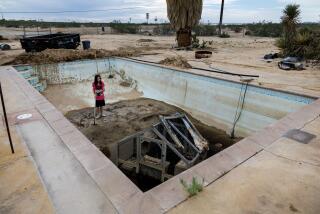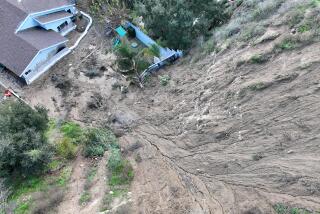Central China grapples with epic flooding
HUAINAN, CHINA — For days, the rain had come in warm, drenching sheets. It swelled the Huai River and turned the heavy clay soil along its watershed into a sticky muck that sucked the shoes off people’s feet.
Zheng Zhaojun had lived here long enough, all of his 32 years, to know the danger the river posed. So when the Communist Party secretary for his village came calling, Zheng moved quickly.
“They told us the water is rising fast — go,” Zheng recalled as he stood in the doorway of the blue canvas tent that has been his family’s temporary home for nearly two weeks. The tent, and dozens around it, stood about 10 feet from a small, hastily built earthen levee. Behind it, water stretched nearly to the horizon, covering Zheng’s house and farm and the properties of thousands of others.
Zheng’s story is a common one this summer. Heavy rains have inundated central China, causing the worst flooding in half a century. More than 100 million people have been affected, and some of them have witnessed rainfall of mind-boggling ferocity, according to the International Federation of Red Cross and Red Crescent Societies.
Nearly as mind-boggling have been the size and scope of the evacuation.
Using the resources of a Communist Party system that still reaches into every crack and crevice of society, China has moved more than a million people from the paths of the floodwaters.
Over the weekend, Chinese President Hu Jintao visited the hard-hit city of Chongqing, wading through the streets in black galoshes and promising help. “This once-in-a-century rain has destroyed your homes and washed away your belongings, causing significant losses,” he said, according to state media. “I am as sad as you. We must have the determination and courage to overcome this.”
The evacuation process hasn’t been perfect — more than 500 people nationwide have lost their lives in the flooding. But compared with some of the epic floods in Chinese history, in which tens of thousands — or hundreds of thousands — of people have died, it has been a relatively efficient response.
“Different countries have different systems,” said Xu Long, the vice president of Fengtai County in the eastern province of Anhui, which includes Huainan. “Maybe China has the unique advantage of having the party hierarchy.”
Many Chinese now view the Communist Party as anachronistic in a nation with a rapidly expanding market economy. Many quietly resent its intrusion into all aspects of life, not to mention its periodic ruthlessness in stilling dissent.
But if there’s one thing the party knows how to do, it is mobilize. And that has turned out to be a good thing when floodwaters are lapping at the door.
In Anhui province alone, state media said Sunday, more than 180,000 people have been put to work on flood control. Nationally, several hundred thousand soldiers of the People’s Liberation Army are among those deployed for disaster relief.
Taking a break for dinner, several top officials in Fengtai County explained how the system works.
Fengtai is a predominantly rural county of small farms and coal mines, with a growing industrial base. With the Huai River carving its way through the region, it is lush with rice fields and small vegetable plots where peasant farmers grow corn, beans and cotton. It is not rich, but no one is starving.
Preparations for flood season this year began in March, with a range of plans mapped out for floods of varying seriousness.
Orders pass down the governmental and party chain of command until they reach individual cadres in small villages.
Fengtai has about 60 villages, each with about 20 Communist Party cadres.
It is these people, along with the village secretaries who head the local governments, who are charged with delivering evacuation orders such as the one carried out in Zheng Zhaojun’s village. The orders are mandatory, and it is uncommon to hear of anyone refusing to leave.
The flooding along the Huai was caused by various factors, including levees that broke, were opened intentionally or were too low for the rising waters. The New China News Agency said today that more than 500 embankments were in danger of being breached in Anhui province.
People walked, rode motorbikes or got rides in cars, trucks and tractors to reach higher ground, where they either moved in with friends and relatives or sought shelter in government centers.
Chen Jiantin, a 17-year-old student from another farming village, wound up in his old fifth-grade classroom, where his family camped among desks and benches.
“It’s a little odd to be living here,” he said.
His father, Chen Ruiguo, a 51-year-old farmer, said he had checked his house since being evacuated, and found the water was chest high.
“All our belongings are in the water now,” he said. The most valuable are the crops, including corn, beans and sweet potato, which account for much of the family’s economic output.
“If the water goes down now, they might be saved,” he said.
That, weather officials say, is unlikely. Forecasts call for continued rain, and the flooding is expected to continue for days.
mitchell.landsberg@latimes.com
More to Read
Sign up for The Wild
We’ll help you find the best places to hike, bike and run, as well as the perfect silent spots for meditation and yoga.
You may occasionally receive promotional content from the Los Angeles Times.






